Precision machining of medical devices-ruiyi model
In recent years, the medical industry has seen an increasing demand for high-quality, high-precision products. These products must be produced on short notice and meet strict industry standards. Product managers and designers now use medical CNC machining to meet these needs.
The versatility of CNC machining in the medical industry and its compatibility with a variety of processes and materials make it suitable for medical manufacturing. Medical products can be manufactured faster and more cost-effectively.
This article discusses why medical CNC machining is ideal for your project. We'll also take an in-depth look at the various materials used in medical processing to help you choose the right material for your product. Read on to learn different tips to maximize the production of CNC machined medical devices.
Why choose CNC machining for the medical industry?
CNC machining is fundamentally a faster and more precise process than traditional processes. As a result, machined products can meet strict tolerance requirements and performance standards. Manufacturers use plastic injection molding to create some medical supplies. CNC machining also helps create high-quality molds for repeatable and consistent injections.
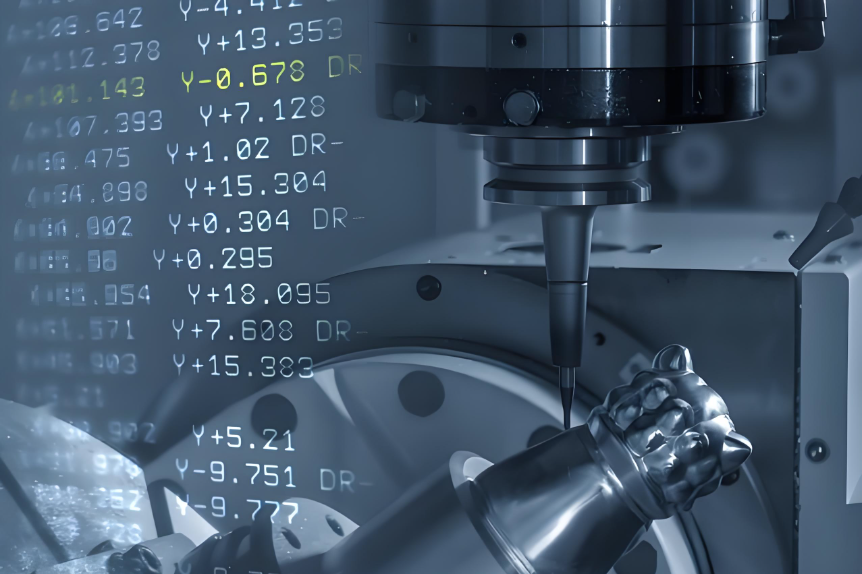
Here are the top reasons CNC machining is valuable for medical prototypes and parts:
1. A variety of tooling options
CNC machining is a cost-effective method of producing high-precision medical components without the need for specialized tools. This process does not involve expensive tools, saving time and money compared to other production methods.
Precision CNC machining provides faster turnaround times for low-volume production or custom parts compared to specialized mold tooling that can take up to four weeks. In the medical industry, where fast and precise parts are often required in small batches, CNC machining proves to be an ideal solution. It provides accurate and high-quality results without the need for specialized tools.
2. No minimum order quantity
Unlike other manufacturing methods that require minimum order quantities, CNC machining does not, making it better suited for smaller projects. CNC machining allows the rapid generation of cutting program digital CAD files.
This makes it possible to produce one or more custom machined medical parts with high precision and no minimum order requirements. As a result, CNC machining is ideal for highly specialized medical devices, equipment, surgical products, prosthetics, and other products that often require one-off or one-off custom parts.
3. High material flexibility
Digital machining enables the use of portable CNC machines and the easy transfer of digital CAD files. Although portable CNC machines have limited capabilities, they can help manufacture simple medical components. With few exceptions, standard CNC machines can work with most commonly used materials for medical and surgical tools, appliances, and parts. These materials include stainless steel, aluminum, titanium, and production-grade plastics such as PEEK.
4. Fast production speed
Medical CNC machining allows for rapid production of medical components. Depending on their complexity, you can produce finished parts in just a few hours. In medical emergencies, where the types of parts or components needed are difficult to predict, CNC production machining can quickly deliver high-quality parts in varying quantities.
5. Machined parts with tight tolerances
Many complex medical devices require very tight tolerances, and CNC machining can easily achieve these service tolerances. This reduces the need for post-processing and minimizes the risk of errors. Not only does it save time and money, it also ensures that medical components are fit for purpose.
Even small deviations in specifications can have detrimental effects on the healthcare industry. The precision and accuracy of medical CNC machining greatly reduces this risk and enables the production of high-quality parts.
6. Flexible design complexity
A key advantage of CNC machining is the ability to quickly and easily transfer digital programs between medical experts, product designers and manufacturing professionals. This capability greatly increases its efficiency in creating high-quality and professional CNC machined medical devices wherever they are needed. This advantage is especially important when time is of the essence. It allows for rapid creation and delivery of essential medical components.
What are the materials used for medical CNC processing?
Medical components are often designed with tolerance, ductility and tension requirements in mind. Designers also considered disposal and sterilization requirements. Therefore, it is crucial to select only the right CNC machining materials that meet functional and quality requirements.
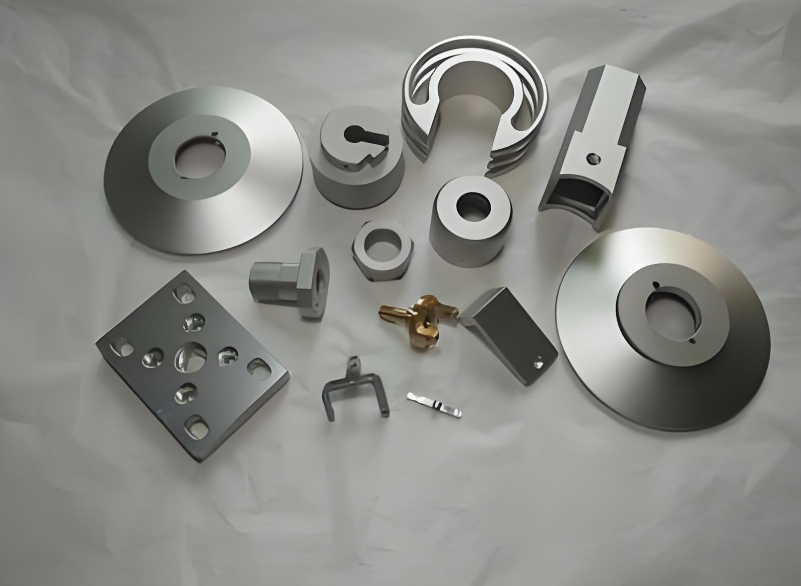
Most medical devices are made of stainless steel, with titanium and aluminum becoming increasingly popular. In some cases, plastic polymers and some composite materials are also ideal. The following table summarizes the applications of standard medical processing materials:
Made from metal
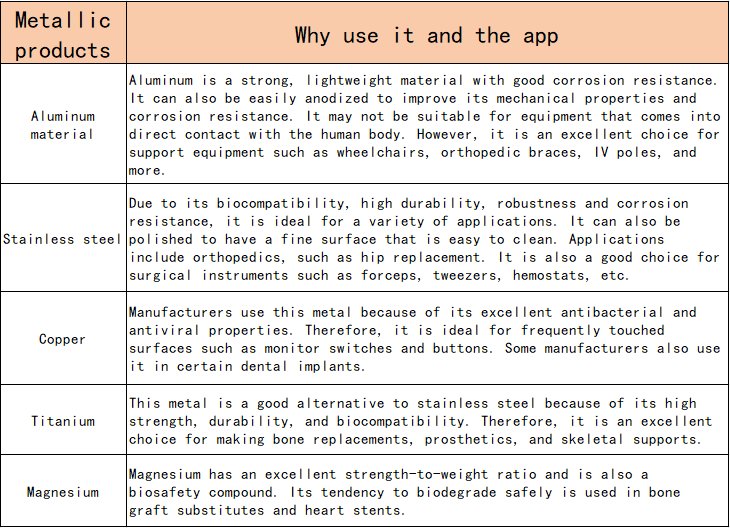
Plastic
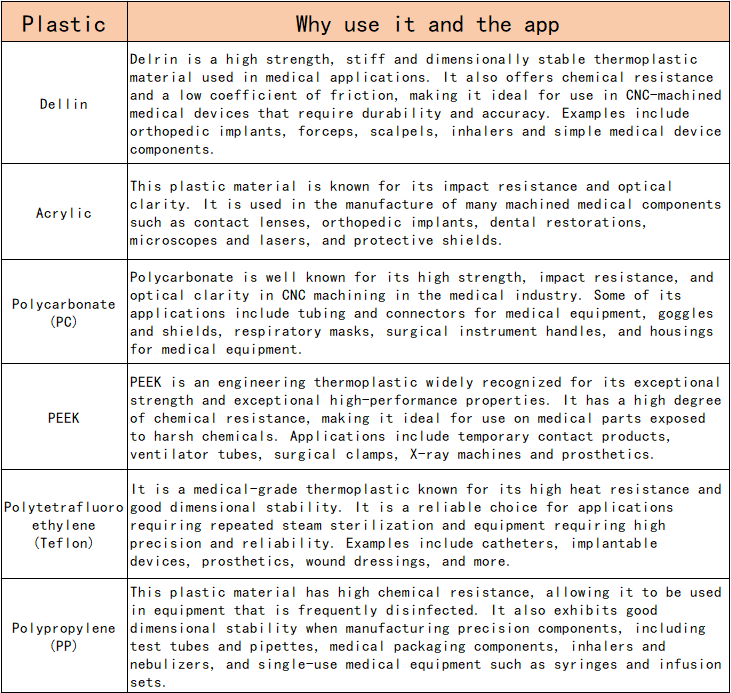

Things to consider when choosing materials
1. If you have long-term contact
Medical devices that are subject to long-term exposure to CNC machining are those implants that are semi-permanently or permanently implanted in or within the body. These devices include pacemakers, prosthetics, artificial heart valves, hearing aids, artificial joints, etc. Therefore, it is necessary to use strong and durable materials for these applications. In this case, biocompatibility is also an important consideration.
In this case, titanium and stainless steel are the metals of choice as they are highly biocompatible and non-toxic to the body. Therefore, they can maintain contact with the organization without any problem. Plastic polymers such as PE, PU, PET and acrylic are also good choices for this type of application.
2. If artificial joints
The choice of artificial joint plastic depends on the specific joint being replaced and the needs of the individual patient. Joint replacement materials for semi-permanent or permanent use must be strong, biocompatible and wear-resistant.
The most commonly used metals for artificial joints are titanium, stainless steel, and cobalt-chromium alloys. They are an excellent choice because of their high strength, biocompatibility, and resistance to corrosion and abrasion. Some of the most commonly used plastic resins are UHMWPE, PEEK, and PTFE.
3. If the prosthesis
Titanium is a popular choice because it is strong, biocompatible, lightweight and corrosion-resistant. Stainless steel and aluminum are also excellent choices, with aluminum being particularly important for lightweight applications. Plastic Resins Materials suitable for these applications include ABS+PC, PMMA, PEEK, glass-filled nylon, and high-impact polystyrene (HIPS).
Titanium is a popular choice because it is strong, biocompatible, lightweight and corrosion-resistant. Stainless steel and aluminum are also excellent choices, with aluminum being particularly important for lightweight applications. Plastic Resins Materials suitable for these applications include ABS+PC, PMMA, PEEK, glass-filled nylon, and high-impact polystyrene (HIPS).
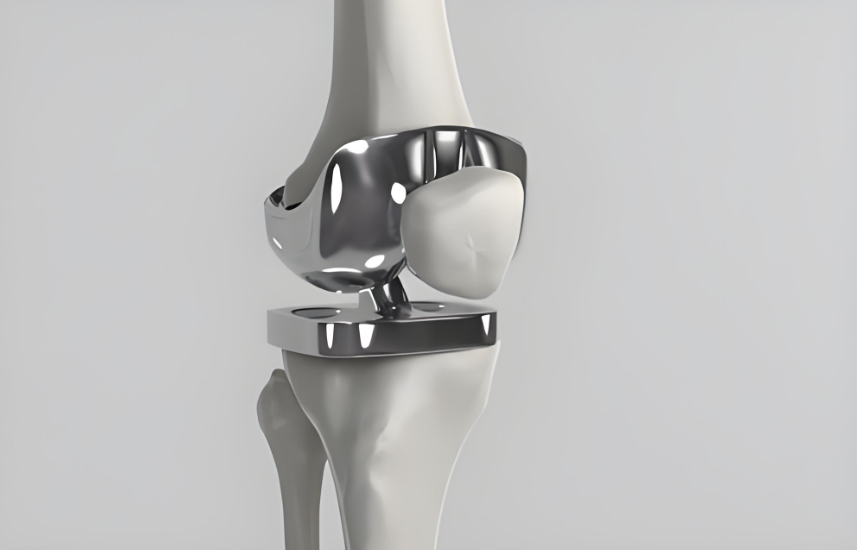
CNC Design Tips for Machining Medical Parts
While CNC machining is an excellent option for manufacturing a variety of medical components, it can get complicated. Therefore, some measures must be taken to get the best results from medical CNC machining. The following points should be followed when designing medical components:
1. Simplify design
Simplifying the design of CNC machined medical devices will increase efficiency, reduce costs and ensure high-precision manufacturing.
2. Use strong colors
This may help improve part identification and traceability, especially for parts of similar shape or size. Strong colors also help distinguish different versions of a part, for example for prototypes or functional testing.
3. Be visually appealing
Visually appealing designs and strong colors can help products stand out in a crowded market. It creates a positive customer impression and makes the product easier to use or recognize.
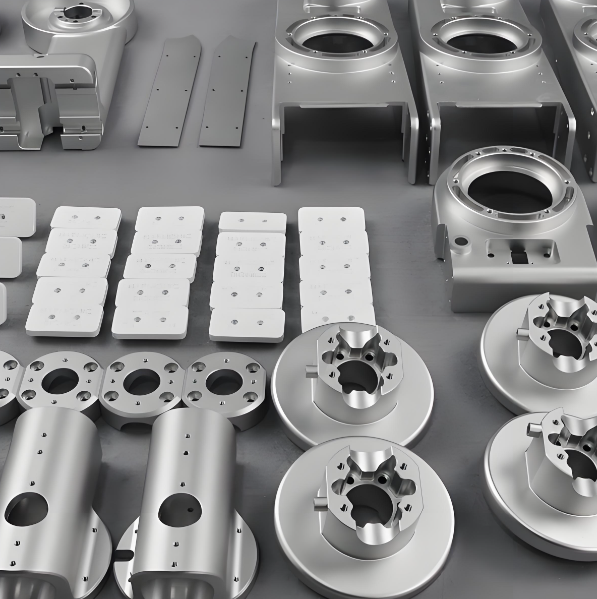
CNC machining examples Medical products
1. Medical implants
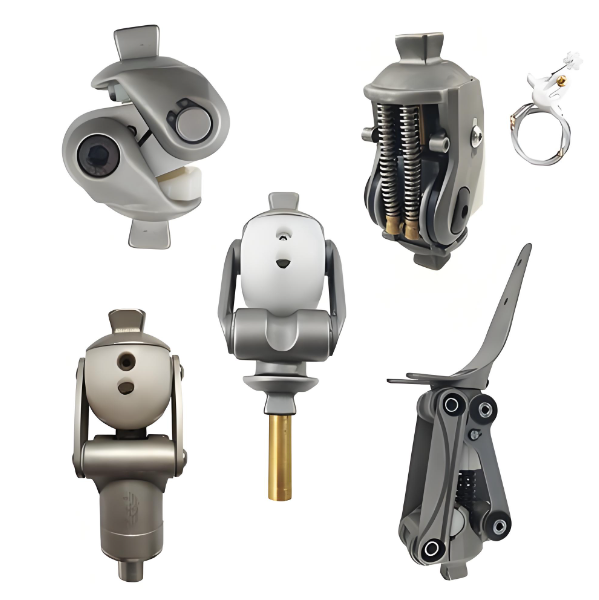
An important application for CNC machined medical parts is in the manufacture of body implants, including hip replacements, spinal implants, and knee implants. The medical field often requires a small number of implants. Therefore, manufacturing processes such as injection molding may not be economical due to high mold production costs.
However, medical CNC machining offers a cost-effective solution. The process utilizes reusable tools, thus reducing production costs. CNC machining’s compatibility with a variety of materials makes it an ideal process for manufacturing medical implants. These materials include titanium, stainless steel, cobalt-chromium alloys and plastics such as PEEK. CNC machining also ensures precision and accuracy, providing doctors with custom implants.
2. Electronic medical equipment
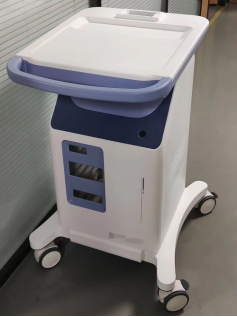
Surgical tools are often simple in design and consist of only a few metal parts. In contrast, complex medical devices involve hundreds or even thousands of individual parts. These devices include MRI scanners, ultrasound equipment, CT scanners, X-ray machines, heart rate monitors and some diagnostic equipment.
CNC machines are capable of producing complex components for these advanced medical devices. The CNC machined parts for these devices range from small buttons and switches to larger monitor housings. The quality and precision of these components are critical to preventing equipment failure. These machined medical device parts must also meet strict safety and reliability standards. As a result, manufacturers can use a wider range of materials in processing than with surgical tools and implants.
3.Medical surgical instruments
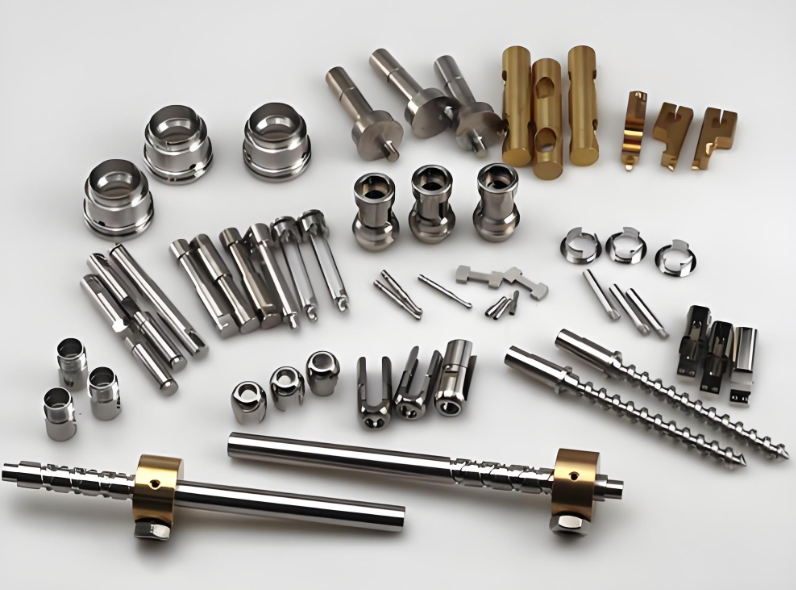
CNC machining technology also helps in the production of surgical instruments used in medical procedures. These components include biopsy tubes, surgical scissors, implant holders, blade handles, forceps, spacers, benders, saws, clamps, and more. To meet the healthcare industry's stringent safety and performance standards, precision and care are critical to creating CNC-machined surgical instruments. Devices must be designed to be easily sterilized and thoroughly tested before being used in medical procedures.
Due to the high level of precision required, CNC machining in the medical industry is also ideal for the production of these surgical tools and instruments. This manufacturing technology provides a cost-effective way to manufacture these parts. In addition to precision, it allows for comprehensive surface finishing treatments to ensure surgical instruments are free of surface defects. This further improves the quality and reliability of these important medical components.
In general, medical CNC machining technology provides strong support for the precision processing of medical devices and promotes the development of the medical industry. With the continuous advancement and popularization of technology, it is believed that medical CNC machining will play a greater role in the field of medical device manufacturing in the future and make greater contributions to people's health.



